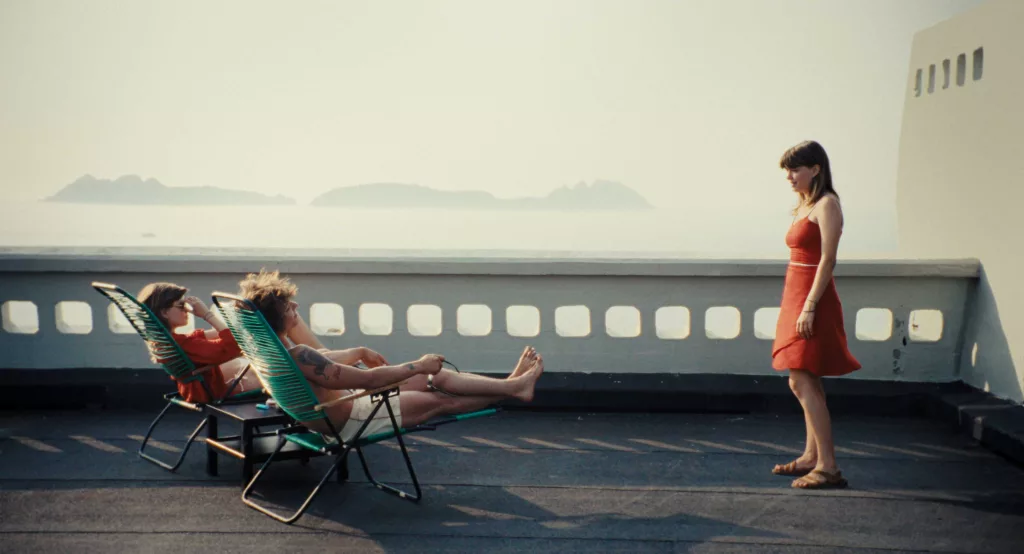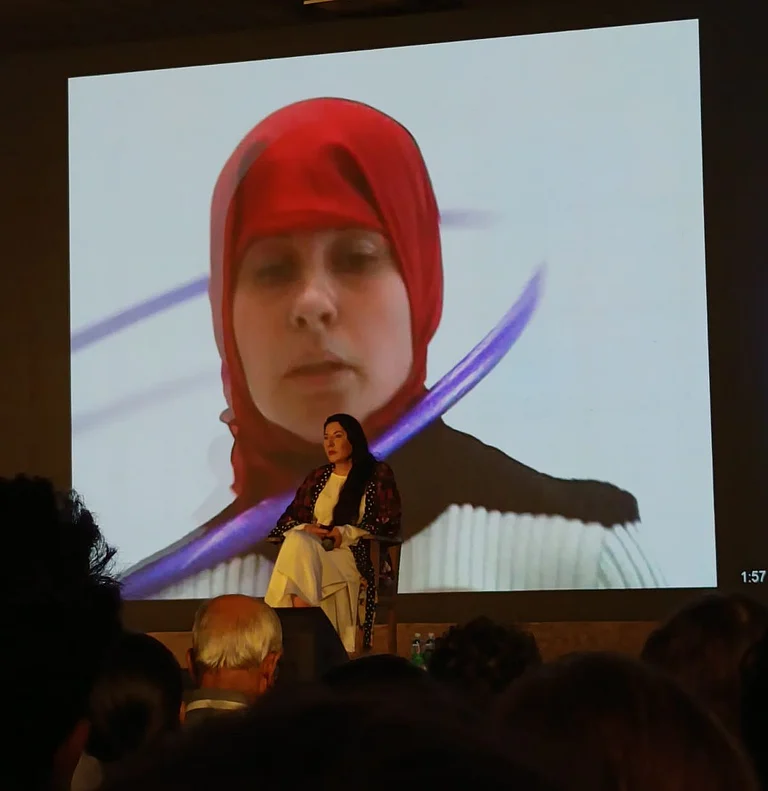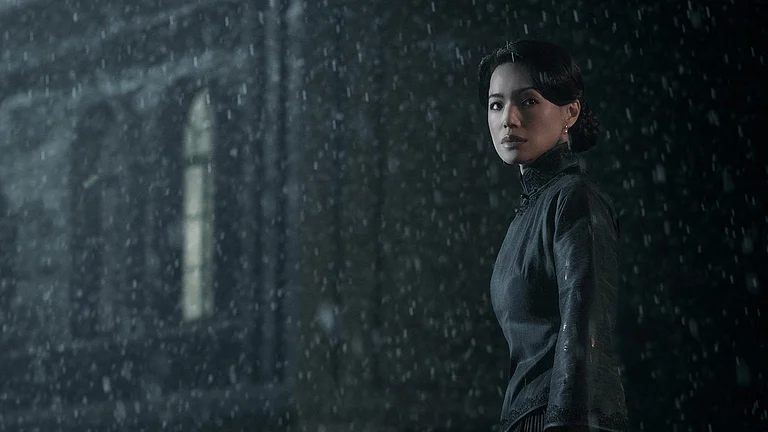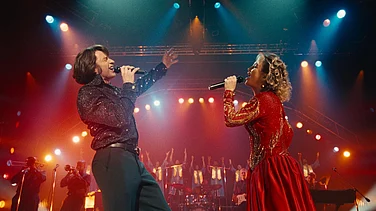
Romería premiered in main competition at the Cannes Film Festival 2025.
It follows a young woman searching for the truth behind her absent father.
The film screened at the 31st Kolkata International Film Festival 2025.
Catalan filmmaker Carla Simón rummages through personal history in Romería. These strains waft through all of her three features. Simón was orphaned at an early age, losing her parents to AIDS. In her follow up to the Golden Bear-winning Alcarràs (2022), she is as keen in tuning into everyday life. Not plot mechanics, but mundane drama runs under her innately reflective work. Only a certain catalyzing revelation moves the needle. The film might seem a tad too ambling to many, but the director intelligently orients such pacing. Romería’s spontaneous, unhurried bearings are determined by its heroine, Marina’s (Llúcia Garcia) uncertain journey. She shares Simón’s childhood losses. Official clauses compel Marina to touch base with her grandparents. They have to testify to her paternity. When the film opens, she struggles with scholarship paperwork for film school. She has no idea what might surface. But she’s not hostile to discovery. She welcomes it, regardless of shattering realizations.
Languidly relaxed, Romería is an airy stroll through memory. It’s an intimate odyssey that peeks between folds and cracks of what ancestors have buried. Set in 2004, Marina is determined to unearth what’s been stowed away. Thus begins a trip from Barcelona to Galicia. From the moment she lands in Vigo on Spain’s Atlantic coast, Marina senses the hidden tugging at her. Her father Alfonso “Fon” emerges beyond elusive loose sketches that she had in mind, as someone cloaked in shame by his parents. Fon’s family would rather have him forgotten. Her entry shakes up retired myths they’ve settled in. Marina’s voyage has her uncovering several, contesting narratives around Fon. Her wanderings are laced with her mother’s diaristic anecdotes in voiceover narration. This see-saw between 2004 and the 1980s doesn’t always cohere but has a rich payoff in a latter section, where the banal melds into the dreamlike.

DP Hélène Louvart, who’s realized sublime visions in Alice Rohrwacher’s films, teams up with Simón for the first time. Effects of this pairing are just as enchanting, revealed in a shimmering, sun-flecked tapestry. We’re whisked into a lulling world which is equally accented with awkward edges. Beneath cursory politeness and affectionate gestures of her father’s family ripple stiff tension. Everyone seems a bit cast askew on Marina’s arrival. Uncles and aunts cover up their real, thrusting feelings under posturing pleasantries. There’s a lot of masking and concealment, wary eliding of flinching conversation. Marina’s quest might have been initially triggered by practical considerations. Only gradually does it gather subtle emotional shape, as her curiosity about her parents expands. What was her father like? She’d never got to meet him. Romería drapes the absent father in a mystery whose unravelling is urgently sought. It’d also unlock the seemingly brief, intense flare of a relationship her parents had, before tragedy struck. The delineations of it all are foggy. Marina yearns for clarity, not necessarily answers. Increasingly, however, the lid is taken off hard truths. Whispers of her cousins provoke Marina into staking out steep terrain with her grand-parents, who can be unpleasant and prefer washing their hands off her. Simón’s eye for family dynamics coasts the film through wavering episodes. In a scabrous moment, Marina’s grandfather, while gifting kids in the family, tries to pay her out and keep her away.

Centering the film is the incandescent Llúcia Garcia. A film like this, whose crux hinges on a delicate interplay of revealing and hiding, demands an actor permeable to the smallest flicker. Garcia registers every micro-beat, the aggravations and attenuations of someone left adrift among supposedly loving strangers. There are long stretches driven purely by Marina’s quiet, shy edge-like presence amidst family bustle. Garcia’s intensely watchful mien is a thing of wonder.

Interestingly, Simón desists from establishing Marina prior to the journey. Neither do we get to know her equation with adopted mother, beyond daily check-ins. Marina comes off as someone on the cusp of self-definition. Not just for bureaucratic legalities, but to know herself better, she hopes to acquaint herself with her roots. As uncomfortable admissions from her elders ensue, Marina’s passivity spikes with pert personhood. She seizes charge of her circumstances, instead of being cornered into submission. There are sexual frissons between Marina and her cousin Nuno (Mitch Martín). Romería witnesses her moving from a threshold to gaining agency in selfhood. Simón fluidly moves with Marina’s perspective, until she enacts a dreamy surreal dive. Garcia and Martín also play Marina’s parents. The rambles through urban Vigo pause, replaced by reckless coastal adventures. Shedding Marina’s reserve, Garcia drums up brash energy. The duo radiates immense allure. This vividly impressionistic detour winnows the narrative through delightful reverie. Previously muted, Romería vibrantly explodes. This chapter makes for one of the year’s most transporting, exhilarating cinematic passages.




























